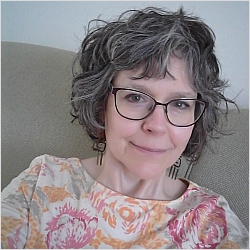What's My Approach to Therapy?
Do you feel confused or frustrated with one or more of your relationships (including the one with yourself) ? Does it seem like things used to be better and you can't figure out how they went sour? Do you sometimes feel like you'll pull your hair out trying to get the other to hear and understand you??
Whether the struggle is your relationship with yourself, partner or spouse, family member, or friend, relationship snags hurt and can be messy to sort through. Maybe you wonder if things will ever be right in this relationship or question whether you're even valued.
If you've tried everything you can think of, you may believe there's no hope. Counseling can help you sort through the tension and muck, clarify what you need, and how you'd like things to be different. You'll can learn and practice skills and behaviors to get more of what you need. It can help you understand and interrupt patterns that replay again and again, to communicate more clearly and productively, rediscover connection, and gain relief from, what may feel like , endless conflict and turmoil.
While loved ones can give advice, they can get grumpy if you don't see it their way. A professional counselor can assist you free of value judgements and bias about how things "should" be. You won't hurt our feelings! I'd like to help. Why not contact me and see how I might help you turn things around?
**See my blog on the website listed at the upper right corner of my profile.
My Practice & Services
Typically, I offer week day sessions from 10 a.m. up to and including 3 p.m. (until evening slots again become available).
Sliding scale fee arrangement offered which ensures complete confidentiality (no paper trail from insurance company) and the avoidance of giving you a diagnosis for insurance purposes. Your session content and frequency can be determined by you and I, not your insurance company or other bureaucracy.
Specific Issue(s) I'm Skilled at Helping With
An issue that has a particularly widespread, negative impact on us and our relationships is related to hateful self talk or mean treatment of ourselves. Over the years, I've worked with folks who are self critical, harsh, or bitingly disgusted with themselves, their basic being. Parenting that essentially implied we needed to 'always do better' to be 'good enough' or never acknowledged our goodness can foster perfectionism, self loathing, and a crippling sense of worthlessness. What's often created is an inner tightness and rigidity, and significant lack of self acceptance which blocks our ability to draw what or who we want. What we often miss is that it's through accepting ourselves, directing kindness and compassion inside and out that produces the most change. As a therapist, I pay attention to (many things) your ability to soothe, calm, and ground. I point out ways to shift behavior while reflecting back the unique inner qualities that my client or couple may only see dimly. How we treat ourselves is essential in healing and empowering ourselves and our relationships. Also, mindfulness practice can help make our world more expansive and rich, rather than smaller and more constricted. Mindfulness practice is defined as paying attention on purpose to our immediate experience without judgment. Mindfulness practice can build resilience, open possibility, and expand your perspectives in ways that enrich your life.
Had a Negative Therapy Experience?
Unfortunately, someone who has had a negative experience with therapy may likely not seek it out again, especially if it was their first time. There are many reasons a bad experience can happen. The most benign is that there was not a good match between client and therapist. Having been a client myself and 'sampled' a range of personal and couples therapists, I've had wonderful positive healing experiences and a couple downright awful ones. When considering therapy , keep a few things in mind. Trust your gut from the time you have a first contact with the therapist through the time you're meeting with this person. Ask questions when you first talk with them and see how they respond. Are they respectful? Do they listen well? Do they welcome questions about how they're working with you or their training? Do you feel cared about and warmly received? Does the therapist indicate knowledge and wisdom about the issues and challenges you bring to therapy? In couples counseling, does the therapist focus on both partners needing change? Remind yourself that if you're not able to discuss issues and get questions answered, or if you have an overall sense of discomfort, you likely have the wrong therapist for YOU. A therapist can be skilled at their work but may not be a good fit for you. I ask clients to make a commitment to themselves to seek growth and change. That may or may not include me. In other words, if I am not the right therapist for you, please don't abandon your quest for working out your challenges with a professional who is a better fit.

